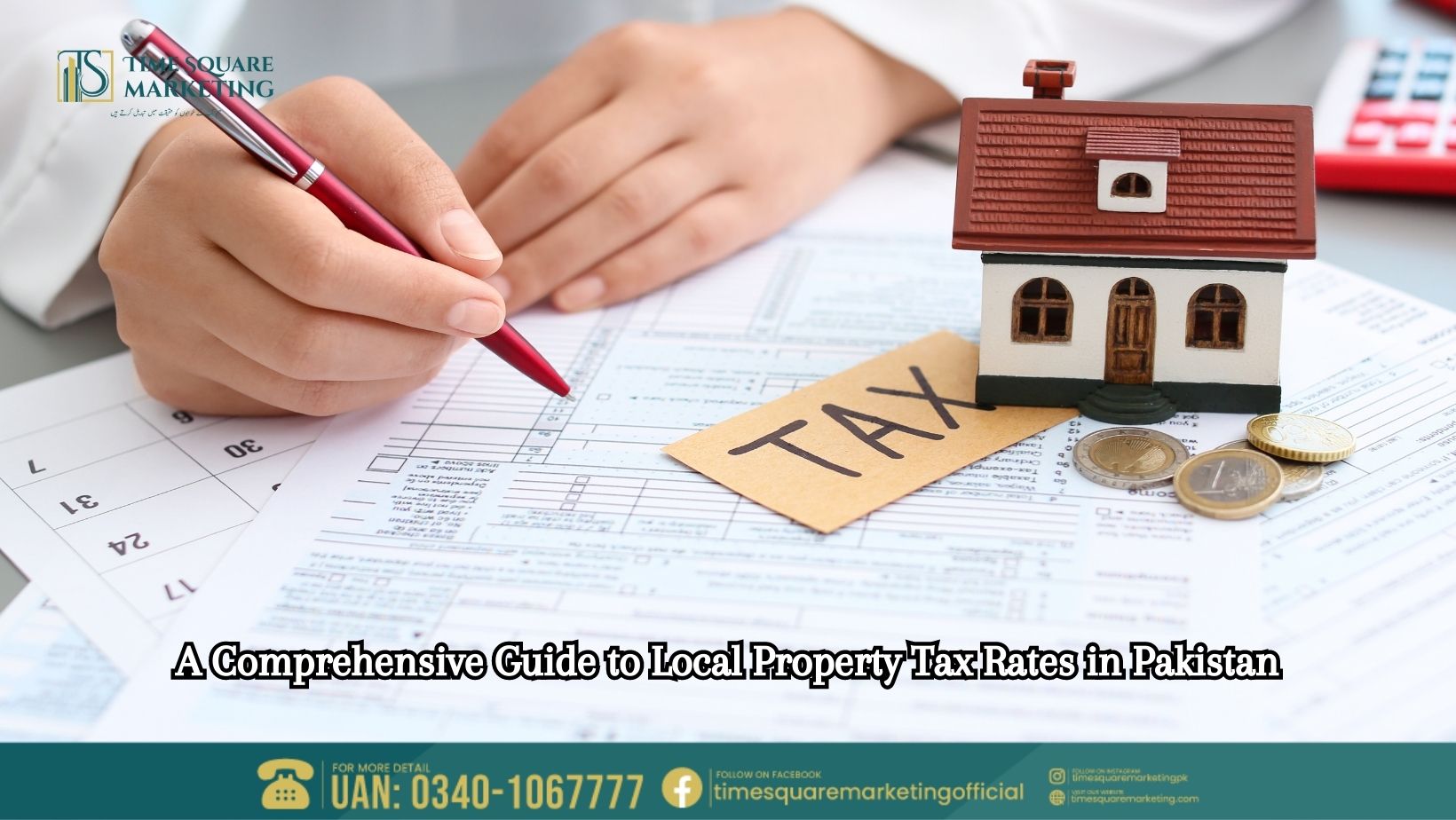Property tax is an essential revenue source for local governments around the world, including Pakistan. Local property tax rates play a crucial role in funding various public services and infrastructure development at the local level. In this blog, we will delve into the intricacies of local property tax rates in Pakistan, exploring how they are determined, their significance, and their impact on property owners and local communities.
Understanding Local Property Taxation in Pakistan
In Pakistan, local property taxes fall under the jurisdiction of provincial and municipal authorities. The collection of property taxes is regulated through the Local Government Acts and various taxation laws specific to each province. These taxes are primarily levied on real estate properties such as residential, commercial, and industrial properties.
See Also: Blue World City Islamabad (UPDATED – 2023) Payment Plan
Determining Local Property Tax Rates
The process of determining local property tax rates in Pakistan varies across provinces and municipalities. Generally, local authorities consider several factors, including property valuation, property type, location, and prevailing market rates. Valuation methods can differ from region to region, ranging from self-assessment to using government-approved valuation tables.
In some provinces, the Excise and Taxation Department or local revenue authorities are responsible for property assessment, while in others, local councils and municipal corporations may handle the task. The objective is to ensure that property tax rates are fair and reflective of the property’s market value.
Significance of Local Property Tax Rates
Local property tax rates are of paramount importance as they directly impact local government revenue and, in turn, the provision of essential public services. These taxes are crucial for funding local infrastructure projects, education, healthcare, waste management, road maintenance, and other public amenities that enhance the quality of life for residents.
By taxing property owners, the burden of financing these services is distributed among those who benefit from them. Moreover, property taxes can act as a deterrent against property speculation and encourage the productive use of real estate.
See Also: Blue World City File Verification in 2023
Types of Local Property Taxes in Pakistan
Annual Property Tax: This is the most common type of property tax in Pakistan. It is levied annually based on the assessed value of the property. The rate can vary significantly across different areas within a province, depending on the local tax policy and municipal needs.
Capital Value Tax (CVT): CVT is a one-time tax imposed at the time of property transfer. It is generally a fixed percentage of the property’s declared or assessed value. The responsibility for collecting CVT lies with the provincial revenue authorities.
Stamp Duty: Stamp duty is also a one-time tax applicable to property transfers and is calculated as a percentage of the property’s sale value. This tax is collected by the relevant provincial authorities.
Withholding Tax: This tax is withheld at the source when property transactions occur. The buyer is required to withhold a certain percentage of the property’s sale price and deposit it with the tax authorities. The rate can vary depending on the property’s value and the tax regulations in the respective province.
Challenges and Issues in Local Property Taxation
Despite the significance of local property taxes, there are challenges and issues that hinder their efficient implementation in Pakistan. Some of these challenges include:
Inadequate Property Valuation: Accurate property valuation is essential for fair taxation, but outdated valuation methods and lack of proper data can lead to undervaluation or overvaluation of properties.
Tax Evasion and Non-Compliance: Tax evasion remains a significant problem in Pakistan, and property taxes are no exception. Some property owners may underreport the value of their properties or find ways to evade taxes altogether.
Administrative Inefficiencies: Inefficient tax collection systems, cumbersome processes, and lack of capacity in tax departments can hinder the timely collection of property taxes.
Lack of Public Awareness: Many property owners are unaware of their tax obligations or the benefits that property taxes bring to local communities. Raising public awareness about the importance of property taxes can help improve compliance.
Impact on Property Owners and Local Communities
Local property tax rates directly impact property owners, tenants, and local communities. For property owners, higher tax rates can lead to increased financial burden, especially if their properties are undervalued, as this may lead to higher taxes relative to the property’s actual market value. On the other hand, lower property tax rates can positively influence property owners’ finances and encourage property investment.
Local communities benefit from property tax revenue through improved public services and infrastructure development. Adequate funding allows local governments to address community needs promptly and sustainably. For instance, improved roads, schools, and healthcare facilities can elevate the overall standard of living in an area, making it more attractive for potential investors and residents.
See Also: Blue World City General Block Phase 2
Conclusion
Local property tax rates in Pakistan are a vital source of revenue for local governments and play a pivotal role in financing essential public services and infrastructure development. While the determination and implementation of property tax rates come with challenges, they remain indispensable for promoting equitable economic growth and community development. As property markets evolve and local needs change, it is essential for policymakers and tax authorities to adopt modern and efficient tax collection methods to ensure a fair and sustainable property tax system in Pakistan. By doing so, the nation can continue progressing towards prosperous and vibrant local communities for all citizens.









